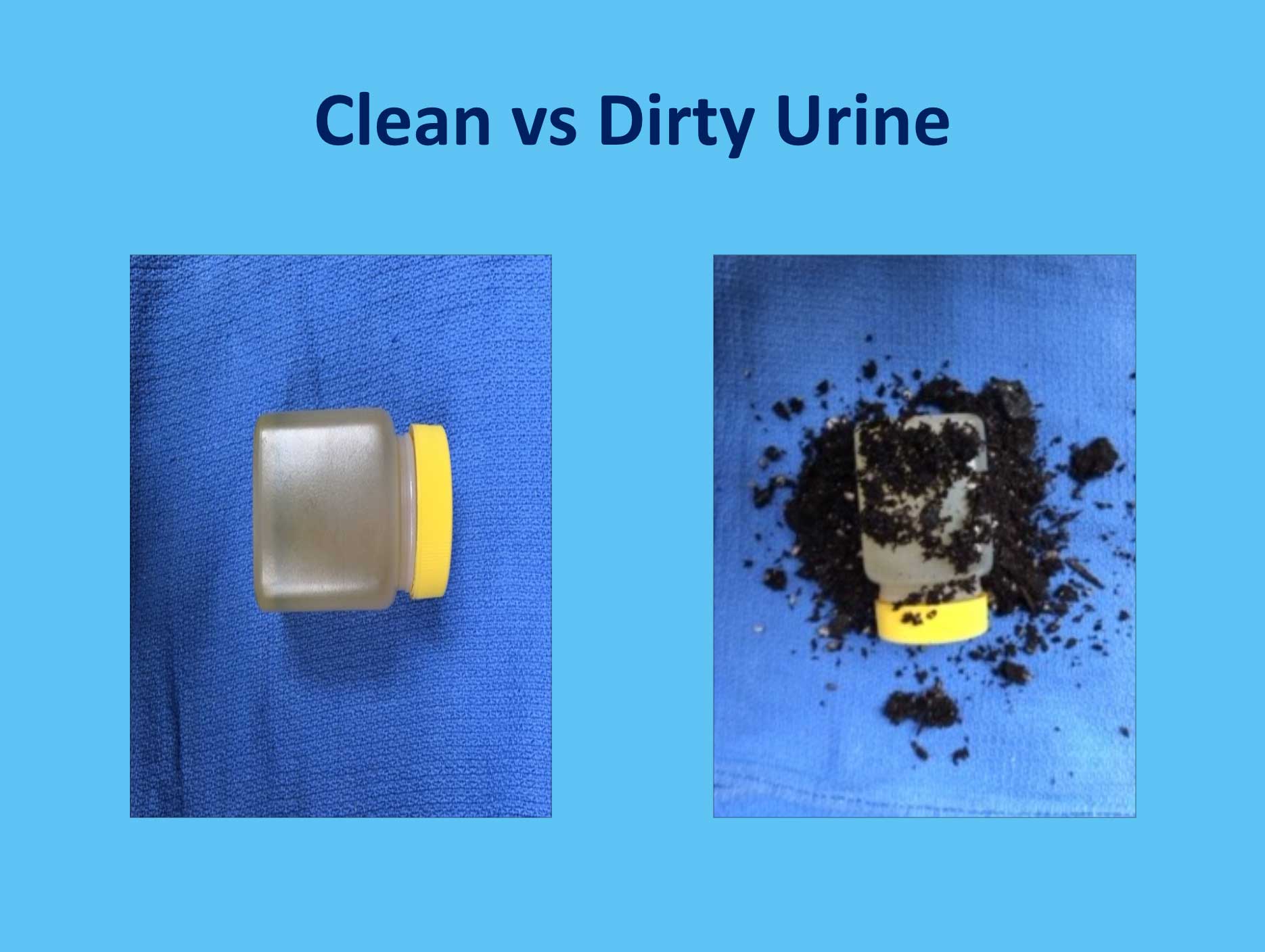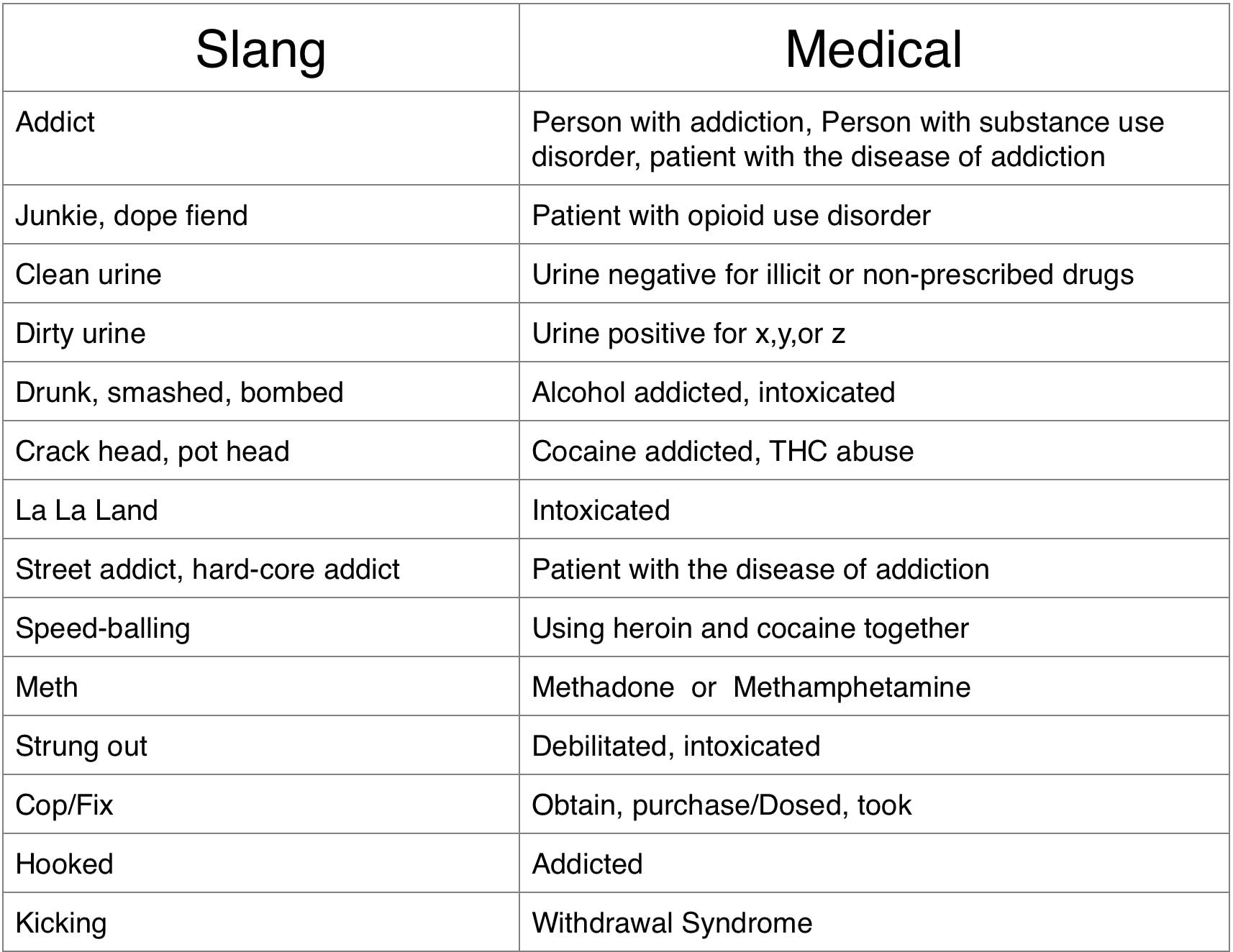
Language Matters
We have witnessed remarkable progress in the understanding of the disease of addiction over the past two decades. Research into the neurophysiology, psychology, sociology, and various treatment modalities of the disease of addiction, is on a par with any of the other chronic diseases. One of our most important goals is to achieve parity with other specialties in medicine. Indeed, much progress, due to the prodigious efforts of many, has already been made in achieving parity.
Our vocabulary in Addiction Medicine is often different from standard medical vocabulary. There has been a tradition of using terms which tend to stigmatize and stereotype our patients and discipline. Many of these terms are slang or “street” language. Although often easily understood and sometimes colorful, they belong in the domain of sociology and ethnography. The following table lists some of these slang terms with the corresponding suggested medical term.
We believe that if we adhere to usual medical terminology, it will help our patients and our field of addiction medicine.
As medical professionals, it is important that we limit “slang” vocabulary. We realize that many of these expressions are deeply imbedded in our field and make for quick communication. We also realize that in certain treatment modalities these terms may be felt to have therapeutic value. Nevertheless, we would like to be the first major conference dealing with the disease of addiction to focus on the vocabulary issue. We also understand that in dealing with a patient, it is necessary to meet them where they are. Obviously, communication in a clinical setting is of paramount importance, and many of these “slang” terms, are necessary for clarity with a patient. But in other areas of medicine, eventually patients learn proper medical terminology from their providers. An example would be diabetes, instead of sugar. Why shouldn’t our medical discipline try to instill medical vocabulary, into what we all know is a chronic medical disease.

